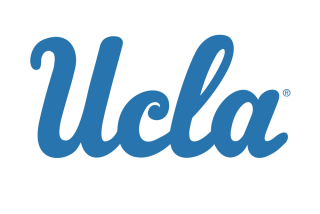Drug Plan May Test CSUN’s Sports Budget
- Share via
The NCAA’s decision to test athletes for drugs and blood-doping before and after championship events will be felt at Cal State Northridge, which has one of the strongest athletic programs in Division II.
Bob Hiegert, Northridge athletic director, said the NCAA’s drug-testing plan will be the topic of discussion at a meeting of California Collegiate Athletic Assn. administrators next week.
“Our conference will of course support the NCAA’s decision and abide by it,” Hiegert said. “We will also have to prepare for it.
“One possibility that has been proposed in the past has been that the conference use its resources to test conference champions before they advance to the championships or regional playoffs.”
Such a plan would allow CCAA teams time to adjust their rosters, if needed, prior to playoff competition.
Hiegert is concerned, however, that Division II and III schools don’t have the financial support needed to help rehabilitate and retest athletes who are tested positive by the NCAA.
“We simply don’t have the resources,” Hiegert said. “I don’t think there is a Division II school in the country that can afford drug testing its athletes. I know no one in the CCAA or WFC does it.”
The NCAA will spend $950,000 this year on testing in laboratories at UCLA and the University of Quebec in Montreal. All athletes participating in championship events will be subject to testing.
In announcing its plan Wednesday, the NCAA was not specific in determining which athletes will be tested. It left open avenues for testing entire teams or selecting individuals at random.
Northridge, which will host the Division II men’s and women’s tennis championships in 1987 and perennially contends for national championships in women’s volleyball, softball and men’s and women’s swimming, would be an easy target for testing because of its proximity to the UCLA testing site.
“I’m sure there will be a lot of testing going on here,” Hiegert said. “Sometimes the NCAA will probably target certain positions from playoff teams to be tested. With us, it would be very easy to pull our whole team in because we’re so close to UCLA.”
Drug testing was approved this year by 99.3% of NCAA member colleges, including Northridge. Specifics of the plan were not outlined until Wednesday, however.
The test the NCAA will use, called a mass spectrograph, can detect amphetamines, cocaine, heroine, marijuana, anabolic steroids, growth hormones and nervous-system stimulants such as high levels of caffeine. There will be another test for blood-doping, which is the intravenous injection of blood.
Cost: $200 per athlete. That might be a wise investment for a school like USC, which has 95 football players on high-priced scholarships and tutors and counselors hired specifically to work with athletes.
But for CSUN?
Hiegert said, in some cases, $200 is more than the school spends on an athlete’s equipment, training and travel during an entire year.
“For Division I schools, they’d be protecting a big investment,” Hiegert said. “For us, it would be the most costly thing we’d do for our athletes all year.”
Walter Byers, executive director of the NCAA, detailed a testing program Wednesday that will strip an athlete of his eligibility if he tests positive or refuses to be tested. If an athlete tests positive after a championship game, the team would forfeit the title.
More to Read
Go beyond the scoreboard
Get the latest on L.A.'s teams in the daily Sports Report newsletter.
You may occasionally receive promotional content from the Los Angeles Times.











